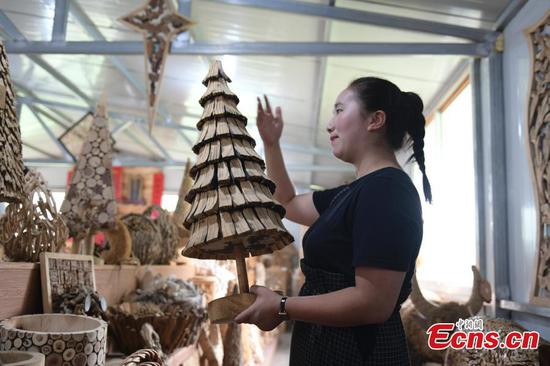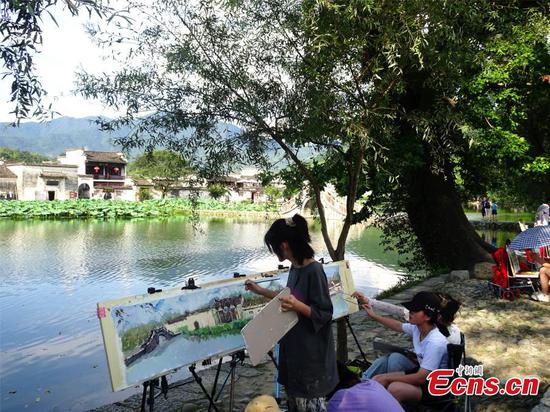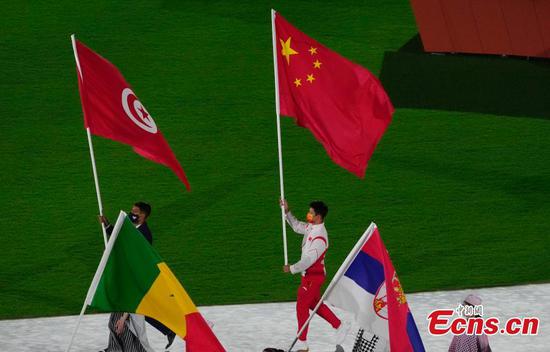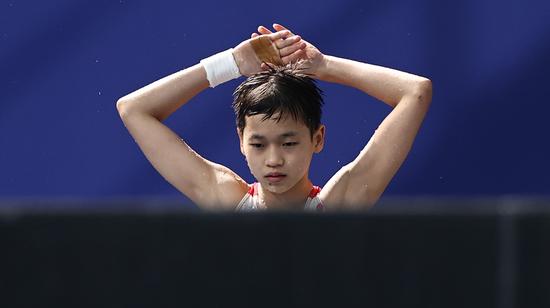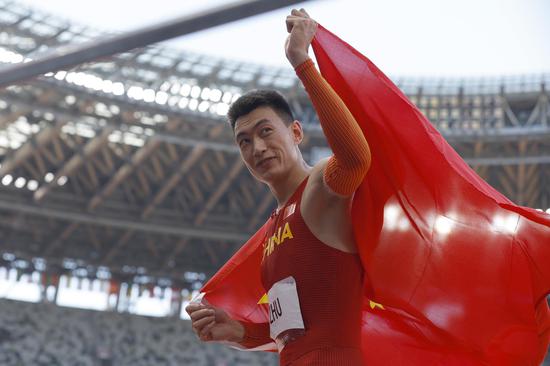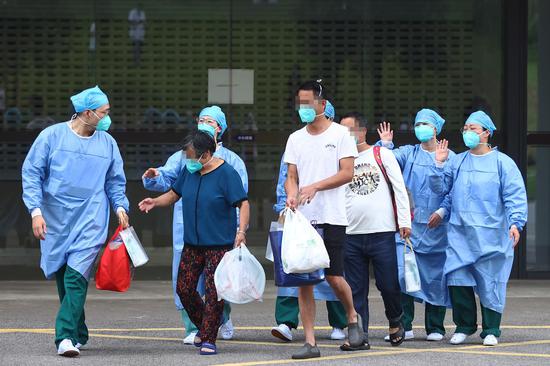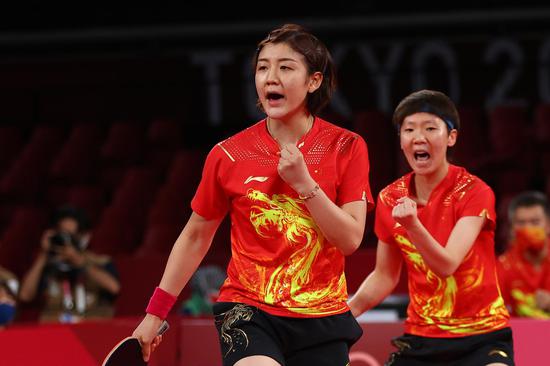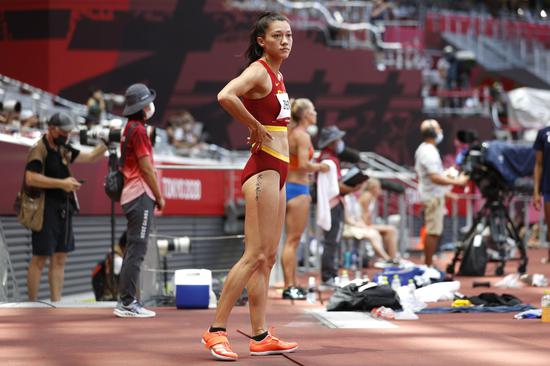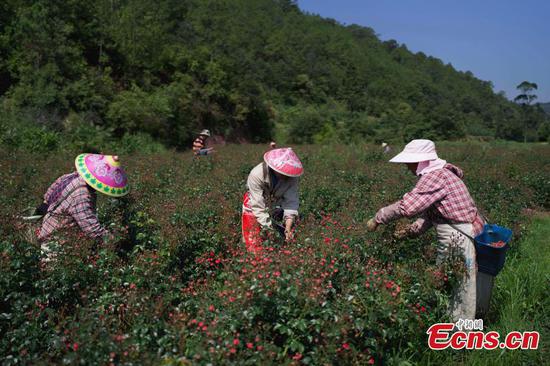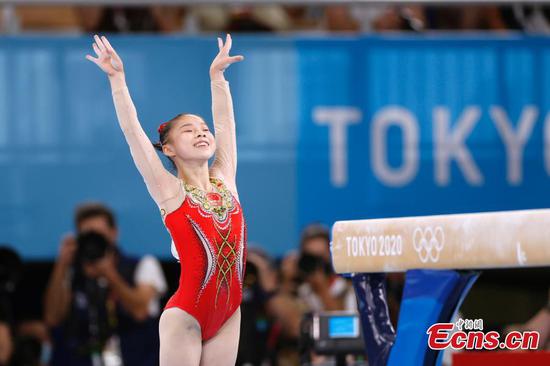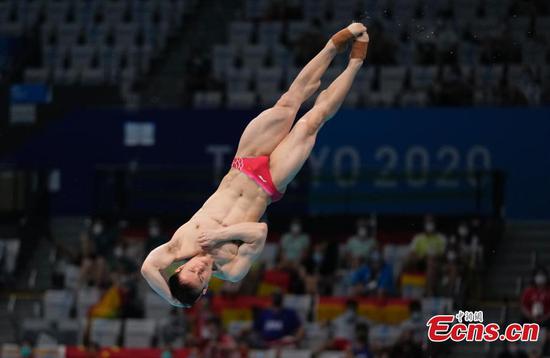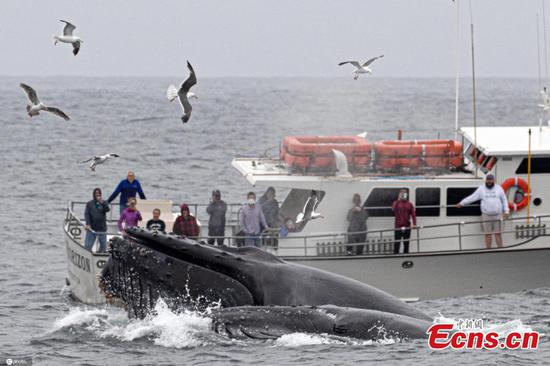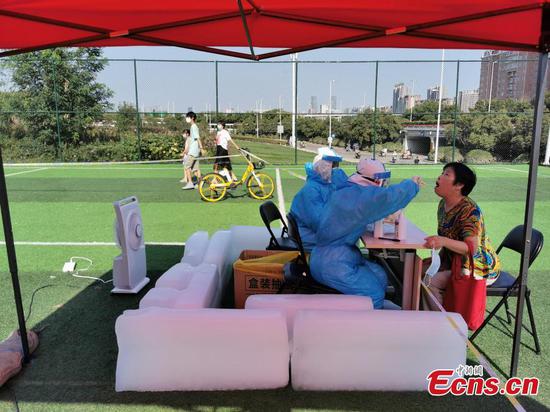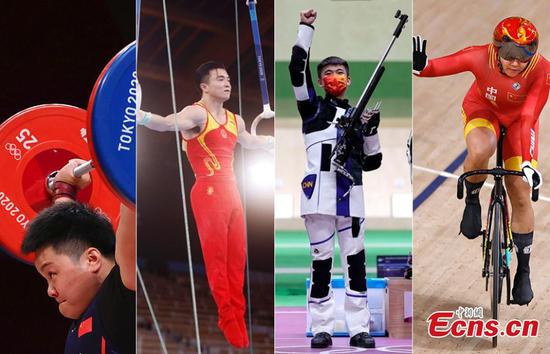
An aerial view of a port in Nantong, Jiangsu province, on July 8, 2021. (Photo/for China Daily by Zhai Huiyong)
Policy backing, demand from major economies expected to support trade
China's robust export performance will not lose steam in the second half of the year, supported by recovering global demand and the nation's pursuit of high-quality development, according to experts and business leaders.
The challenges foreign trade faces, such as disrupted logistics and surging commodity prices, are not likely to continue for long, as the nation's steadily optimizing business environment and stable industrial and supply chains make it even more attractive to foreign investors amid the COVID-19 uncertainties, they said.
"Lower year-on-year export growth rates in the second half of the year are expected, because we have high comparison bases in the same period last year, when exports grew very strong compared with previous pandemic-depressed months," said Gao Lingyun, a senior research fellow and director of the international investment division of the Chinese Academy of Social Sciences' Institute of World Economics and Politics.
"But that doesn't mean exports themselves will weaken," he said, adding that imports are also forecast to perform well in the coming months, as China's economy will expand and will also need more consumer products to meet people's increasing demand for better lives.
Gao predicted that exports in 2021 will grow about 15 percent year-on-year. The imports and total foreign trade growth rates will be of similar levels.
Zhang Yansheng, chief researcher at the China Center for International Economic Exchanges, said China's adoption of multiple policy measures to support foreign trade and foreign investment, together with the sound fundamentals of the Chinese economy, will guarantee the healthy growth of exports and imports this year.
The country's foreign trade expanded to 21.34 trillion yuan ($3.3 trillion) in the first seven months, up 24.5 percent year-on-year and 22.3 percent from the same period in 2019, according to the General Administration of Customs.
However, export growth in July was 8.1 percent compared with the previous year, below the 20.2-percent growth in June.
According to Zhang, although some export orders may be transferred to other countries resuming production in the coming months, the further opening of major economies from pandemic-induced restrictions will boost global demand for China's exports.
Besides, the economic stimulus measures taken by the United States will also help drive up China's trade with the world's largest economy, as well as with other trading partners such as the European Union and the Association of Southeast Asian Nations, he added.
Gao attributed the growth rate slowdown in July partly to the impact of unexpected logistics disruptions from the Suez Canal blockage in March, and the monthlong suspension of operations at Yantian Port in Shenzhen, Guangdong province, due to a local COVID-19 outbreak about two months ago.
He said surging commodity prices are mainly caused by loosened monetary policies in countries such as the US, which cannot last long, and with adjustments in ports and freight operations to deal with the pandemic, logistics costs are also expected to stabilize and become moderate, easing the cost pressure foreign trade enterprises face.
Woody Guo, president of Herbalife Nutrition China and senior vice-president of Herbalife Nutrition, a US-based multinational company, said the company will keep investing heavily in China, because of the country's efforts to build an open economy and protect the legitimate rights of foreign investors, and the business opportunities arising from its economic growth.
Herbalife Nutrition has built three production bases-in Suzhou and Nanjing in Jiangsu province, and Changsha, Hunan province-which not only produce 95 percent of the products it sells in China, but also export plant extracts and other products to many other countries, forming an indispensable part of the company's global supply chain, he said.
To support further foreign trade growth, Zhao Ping, deputy head of the Academy of China Council for the Promotion of International Trade, suggested China further improve trade facilitation and strengthen inspection on administrative fees in ports and on logistics services to reduce increased shipping costs, provide stronger financial support to foreign trade enterprises and encourage them to explore new market demand and innovate business models, increasing their ability to deal with uncertainties.











